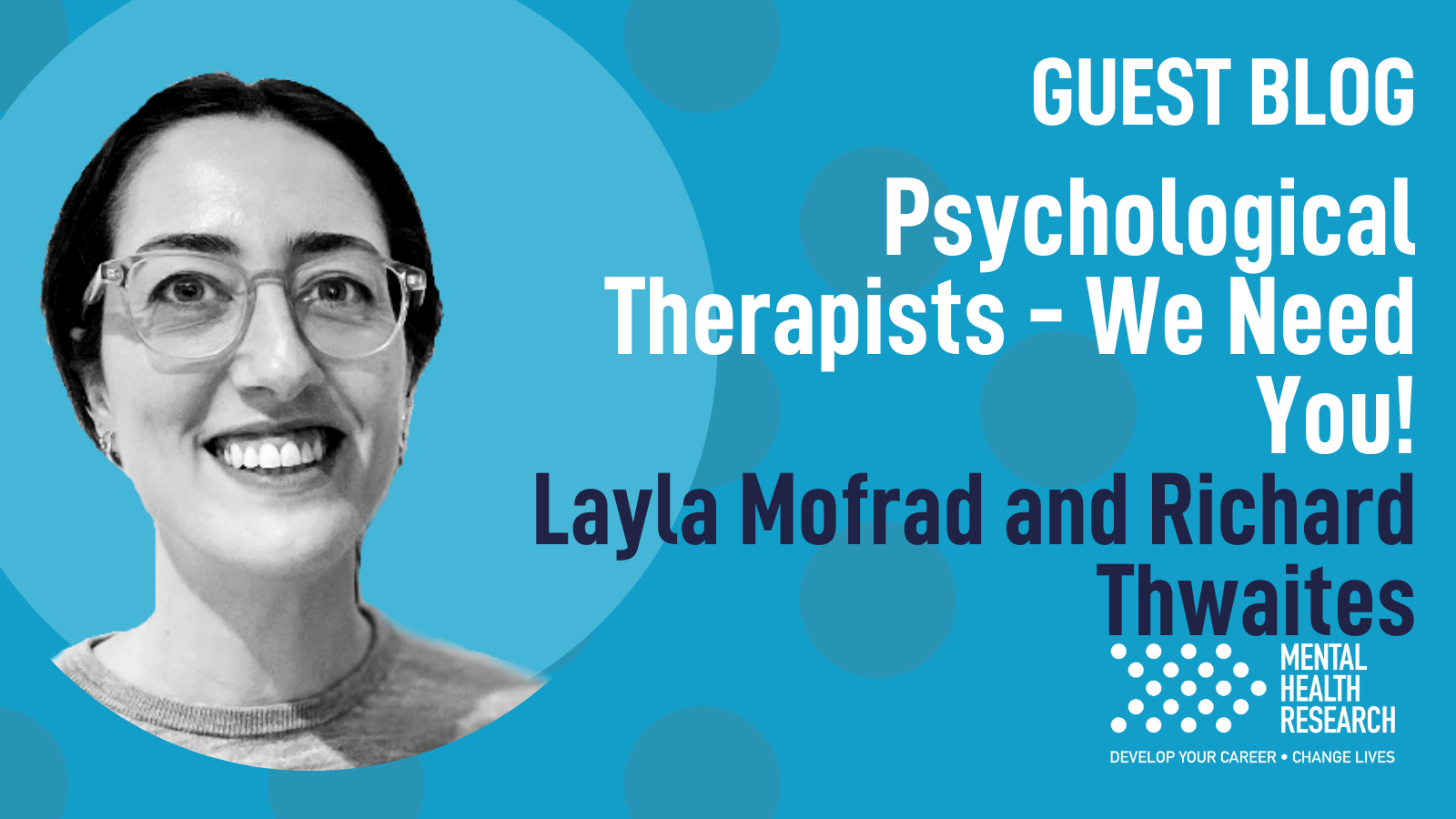
By Layla Mofrad and Richard Thwaites
Since 2008, the creation of NHS Talking Therapies (previously known as Improving Access to Psychological Therapies – IAPT) has led to the training and development of thousands of new psychological therapists and practitioners who are now working across a wide range of physical and mental healthcare settings. These practitioners cover a range of therapeutic modalities but for the purposes of this blog we will focus on those we know most about, CBT practitioners and low intensity CBT (Psychological Wellbeing Practitioners).
Currently there are 3387 qualified CBT therapists and 2727 qualified Psychological Wellbeing Practitioners within the ‘NHS Talking Therapies’ workforce! Despite the size of this important new workforce, there’s been no standard expectation that these therapists could critically interrogate and build on the models they work with. The initial priority was to deliver therapy and not necessarily to develop it and training courses reflected this and many courses did not include research skills. We think this is a problem.
So, why do we need research active psychological therapists?
These practitioners are at the coal face of CBT and other therapies, and so are in a prime position to develop it. We do not want an army of passive therapists working with a mass of passive recipients. The principles of CBT are of active collaboration balancing task and alliance. We need to be embedding this at an organisational level with a workforce that is empowered to develop and lead the therapy forward, a group that is actively co-producing the next generation of therapies and therapists.
“True implementation research is not possible without the engagement of frontline clinicians“
What other benefits would a research-active workforce bring?
Within clinical psychology there has long been a debate around the scientist-practitioner model and experience tells us that most clinical psychologists are not research-active despite their research training. It is therefore unlikely that all IAPT/NHS Talking Therapies psychological therapists will want to produce research. However the system needs to ensure that it is possible and staff who have the ability and desire to do research are supported.
The inclusion of frontline clinicians in research can bring a different approach. Clinical work can bring ‘hunches’ that lead to important research questions. Clinicians are very aware of where there are gaps in current research or examples of where current models need to be developed further. True implementation research is not possible without the engagement of frontline clinicians: how many developments take years to be integrated into clinical practice (or never are) due to gaps between academics and frontline clinicians?
There are numerous studies demonstrating that the engagement of clinicians and services in research improves clinical outcomes. The exact mechanisms are less clear but we could speculate that being part of research increases reflection-on and reflection-in-action, that it increases engagement with the evidence base and leads to the development of therapeutic meta competences. (This is another hunch right here that needs researching!)
On a related note, the NHS Talking Therapies workforce is representative of the current population with respect to ethnicity (although this isn’t the same within service leadership structures). There is potential for a wider range of diverse voices to guide the research agenda and ensure that CBT models and the associated evidence base is acknowledging the dominant whiteness of the field. We could move beyond this to truly ensure that CBT is accessible and effective for all.
Bridging the gap between academia and clinical practice
There are a range of journals publishing very clinically focused papers ranging from original research, case studies (and in NHS Talking Therapies we are world experts in collecting sessional data!) through to Empirically Grounded Clinical Guidance Papers. The BABCP Practitioner journal (the cognitive behaviour therapist) regularly publishes papers by first time authors and has been piloting a mentoring scheme to help people bridge that gap. Often first-time authors struggle with confidence, imposter syndrome or even how to write in a different way (and often how to submit papers through journal portals).
Over my (Layla) time in what was then IAPT, I published three papers in tCBT respectively based on work we were doing in IAPT around working with interpreters, needle phobia treatment and intolerance of uncertainty. Another research-active IAPT CBT therapist, Lilian Skilbeck, has published five papers in tCBT based on her clinical work within IAPT/NHS Talking Therapies.
How to get started?
Therapists
- Find a mentor and build a network of other research active clinicians
- Write up something small scale
- Apply for funding
- Collaborate with others to make the task more achievable
- Develop a research strategy in your team
Services
- Link in with your Research and Development teams in your organisation (if it has them, all NHS Trusts do)
- Engage with any Practice Research Networks in your area e.g., NORTHERN IAPT PRACTICE RESEARCH NETWORK – Home page (iaptprn.com)
- Link in with local universities that might want to do joint research
- Discuss the benefits around being a research active service with your commissioners
- Identify staff that are keen and willing to engage and support them
Further reading:
Engaging with research as a clinician | BPS
Layla and Lilian found very different solutions that have facilitated their development as clinical-researchers and you can find their stories here and here.
